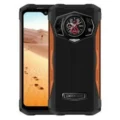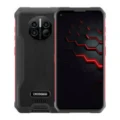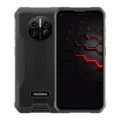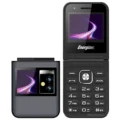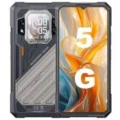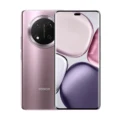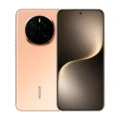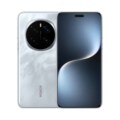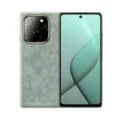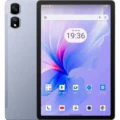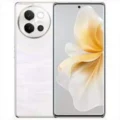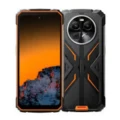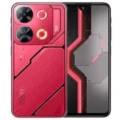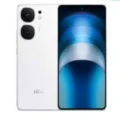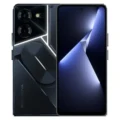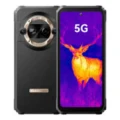Doogee T10





-
: 8GB RAM Unisoc T606
-
: 10.1" 1200x1920 pixels
-
: 8300mAh 18W
-
: 13MP 1440p
The Doogee T10 is a budget-friendly Android tablet that prioritizes a large display, long battery life, and affordability. Here’s a breakdown of its key features:
Display: The T10 sports a spacious 10.1-inch IPS display with a resolution of 1920 x 1200 pixels (FHD+). This resolution offers good clarity for watching videos, browsing the web, or reading ebooks.
Processor and Performance: The tablet runs on a Unisoc T606 octa-core processor clocked at up to 1.6 GHz. This chip is designed for basic tasks and might struggle with demanding games or heavy multitasking.
Storage and RAM: The Doogee T10 comes in two configurations: 8GB of RAM with 128GB of storage or 15GB of RAM with 128GB of storage (availability may vary by region). 15GB of RAM is an uncommon feature in tablets and could be a selling point for users who prioritize multitasking. However, some reviews suggest it might be virtual RAM, which uses a portion of the storage space to enhance performance.
Battery: A large 8300mAh battery powers the T10, promising extended usage on a single charge. Doogee claims it can deliver up to 15 hours of video playback, which is suitable for long journeys or movie marathons. It also supports 18W fast charging for quicker power top-ups.
Cameras: The T10 features a 13MP rear camera and an 8MP front camera. These cameras are decent for basic photo capturing or video calls, but don’t expect high-quality results.
Software: The Doogee T10 runs on Android 12, offering a familiar and user-friendly interface with access to the Google Play Store for a vast app selection.
Other Features: The T10 includes dual speakers for stereo sound, Wi-Fi connectivity, Bluetooth, GPS for navigation, and a headphone jack. It might also have expandable storage via a microSD card slot (check specific details before purchase).
Overall: The Doogee T10 is a good option for users looking for a large, affordable tablet for everyday tasks like watching videos, browsing the web, reading, or light gaming. The long battery life is another plus. However, keep in mind the processor might not be ideal for demanding applications, and the cameras are basic.
Want to Learn More?
Visit the official website of Doogee for detailed information about the Doogee T10: Doogee Official Website
Still Unsure?
If you’re still unsure about your choice, explore other options from Doogee at your nearest store: Doogee Store
Specs
Network
| 2G Network GSM 850 / 900 / 1800 / 1900 - SIM 1 & SIM 2 (dual-SIM) CDMA 800 / 1900 |
GSM 850 / 900 / 1800 / 1900 - SIM 1 & SIM 2 |
| 3G Network | HSDPA 850 / 900 / 1900 / 2100 |
| 4G Network | 1, 3, 5, 7, 20, 34, 38, 39, 40, 41 |
| Speed | HSPA, LTE |
LAUNCH
| Announced | November, 2025 |
| Status | Available. Released 2022, November 01 |
BODY
| Dimensions | 242.3 x 161.1 x 7.5 mm (9.54 x 6.34 x 0.30 in) |
| SIMs SIM (Subscriber Identity Module) is a small card that contains mobile network subscriber's account information. This allows the phone using the card to attach to a mobile network. The SIM card is most commonly associated with GSM and UMTS mobile networks. Moving a SIM card from one phone to another allows a subscriber to switch mobile phones without having to contact their mobile network carrier. SIM cards can also be used by a phone to store limited amounts of data, such as phone numbers and text messages. | Glass front, aluminum frame, aluminum back SIM Hybrid Dual SIM (Nano-SIM, dual stand-by) |
Display
| Display Type Display Technology => A number of display technologies and types used in mobile phones => TFT (Thin Film Transistor), IPS (In-Place Switching), OLED (Organic Light Emitting Diode), AMOLED (Active-Matrix Organic Light-Emitting Diode), Super AMOLED (an even advanced version of AMOLED), Resistive Touchscreen (Resistive touchscreens contain two layer of conductive material with a very small gap between them which acts as a resistance), Capacitive Touchsceen (Capacitive touchscreen technology consists of a layer of glass coated with a transparent conductor) | IPS LCD, 300 nits (typ) |
| Size | 10.1 inches, 295.8 cm2 (~75.8% screen-to-body ratio) |
| Resolution | 1200 x 1920 pixels, 16:10 ratio (~224 ppi density) |
PLATFORM
| Operating System OS => Every computer system run on a base software called Operating System (OS). Operating System controls all basic operations of the computer (such as smartphone, PDAs, tablet computers and other handheld devices). The Operating System allows the user to install and run third party applications (apps), apps are used to add new functionality to the device. | Android 12 |
| Chipset Chipset is a group of integrated circuits designed to perform one or a more dedicated functions, often with real time computing constraints, Popular smartphones are equipped with more advanced embedded chipsets that can do many different tasks depending on their programming. | Unisoc T606 (12 nm) |
| CPU CPU (Central Processing Unit) mostly known as processors, CPU processes instructions in order to carry out certain functions that make your device operate properly. Processors are often described as the brain of computers, smartphones and tablets, Smartphones and tablets rely on processors to carry out their every task, Processors are an incredibly important factor in selecting any type of computing device, including your smartphone. | Octa-core (2x1.6 GHz Cortex-A75 & 6x1.6 GHz Cortex-A55) |
| GPU GPU (Graphics Processing Unit) is a single-chip processor designed to rapidly manipulate and alter memory to accelerate the creation of images in a frame buffer intended for output to a display, This includes things such as lighting effects, object transformations, and 3D motion. | Mali-G57 MP1 |
MEMORY
| Card Slot Memory Card Slot is a special slot for inserting a memory card. Memory cards allow you to expand the phone's built-in memory, A memory card (sometimes called a flash memory card or a storage card) is a small storage medium used to store data such as text, pictures, audio, and video, for use on small, portable or remote computing devices such as mobile phones, mp3 players, digital cameras. | microSDXC (uses shared SIM slot) |
| Internal | 128GB 8GB RAM eMMC 5.1 |
MAIN CAMERA
| Cameras Specs Today’s smartphones come equipped with a very comprehensive set of camera related specifications. Our smartphone, for many of us, has become our primary camera due to it being the one we always have with us. |
13 MP secondary unspecified camera |
| Video | 1440p@30fps, 1080p@30fps |
| Camera Features | LED flash, HDR, panorama |
SELFIE CAMERA
| Cameras Specs Today’s smartphones come equipped with a very comprehensive set of camera related specifications. Our smartphone, for many of us, has become our primary camera due to it being the one we always have with us. |
8 MP |
| Video | 1080p@30fps |
SOUND
| Loudspeaker | Yes, with stereo speakers |
| 3.5mm jack | Yes |
COMMS
| WLAN |
Wi-Fi 802.11 a/b/g/n/ac, dual-band |
| Positioning | GPS, GLONASS, GALILEO, BDS |
| Bluetooth Bluetooth is a wireless communications technology for exchanging data between mobile phones, headsets, computers and other network devices over short distances without wires, Bluetooth technology was primarily designed to support simple wireless networking of personal consumer devices. | 5.0, A2DP, LE |
| Infrared Infrared connectivity is an old wireless technology used to connect two electronic devices. It uses a beam of infrared light to transmit information and so requires direct line of sight and operates only at close range. | |
| USB | USB Type-C 2.0, OTG |
| NFC NFC (Near field communication) is a set of standards for smartphones and similar devices to establish peer-to-peer radio communications with each other by touching them together or bringing them into proximity, usually no more than a few inches. | |
| Radio |
Features
| Sensors Sensors are electronic components that detects and responds to some type of input from the physical environment. The specific input could be light, heat, motion, moisture, pressure and location, The output is generally a signal that is converted to use in computing systems, a location sensor, such as a GPS receiver is able to detect current location of your electronic device. |
Gyro |
BATTERY
| Battery Type Battery Type => Cell phones run on various kinds of batteries depending on the manufacturer, phone size or shape and features. There are basically four types of cell phone batteries => Lithium Polymer, Lithium Ion, Nickel Metal Hydride and Nickel Cadmium. | Li-Ion (Lithium Ion) |
| Charging The functionality responsible for recharging batteries in portable devices, such as mobile phones, significantly influences both battery lifespan and the practicality of daily product usage. The charging process, encompassing factors like voltage, current, and completion actions, is contingent upon the battery's size and type. Contemporary battery chargers dynamically adjust charging parameters based on the battery's current charging state. Charging an empty battery poses no safety risk, allowing for a quicker charging process. Consequently, many charging speed benchmarks, including ours, specify the battery level achieved after a 30-minute session on an empty battery. Standard chargers with a power output of 5V/1A, equivalent to 5W, serve as a baseline, with anything surpassing this speed classified as quick or fast charging. | 18W wired |
MISC
| Colors |
Space Gray, Moonlight Silver, Neptune Blue |
| Price | About 140 EUR |
TESTS
Reviews
Disclaimer Note
We strive to maintain accurate and up-to-date content on our website for general information purposes only. Please refrain from using the material for business, legal, or any other decisions.


